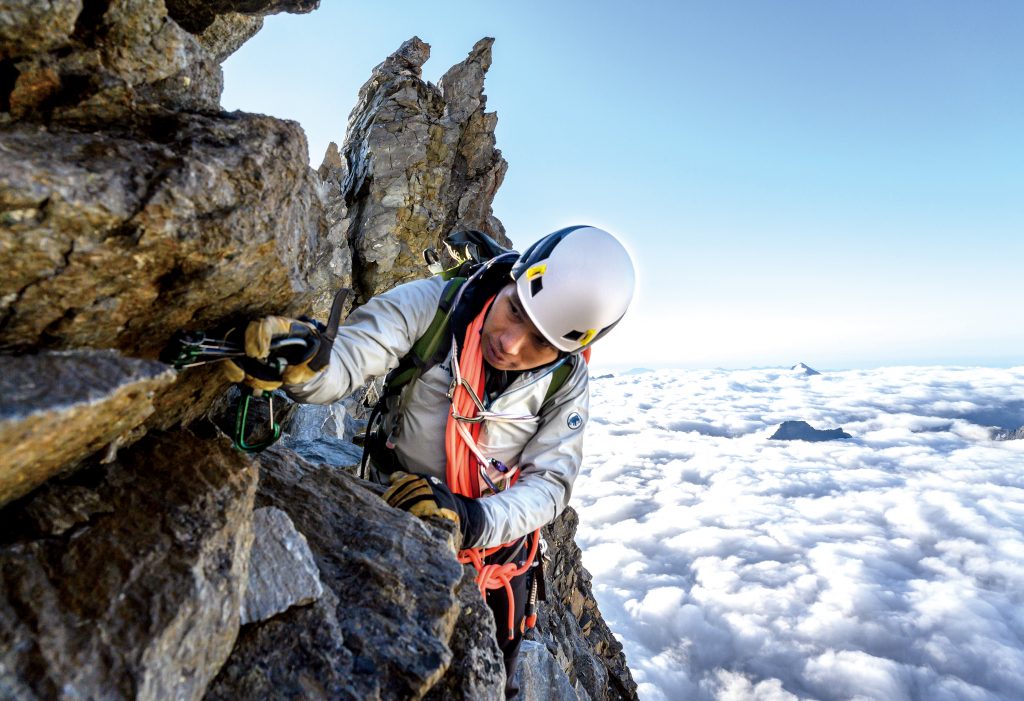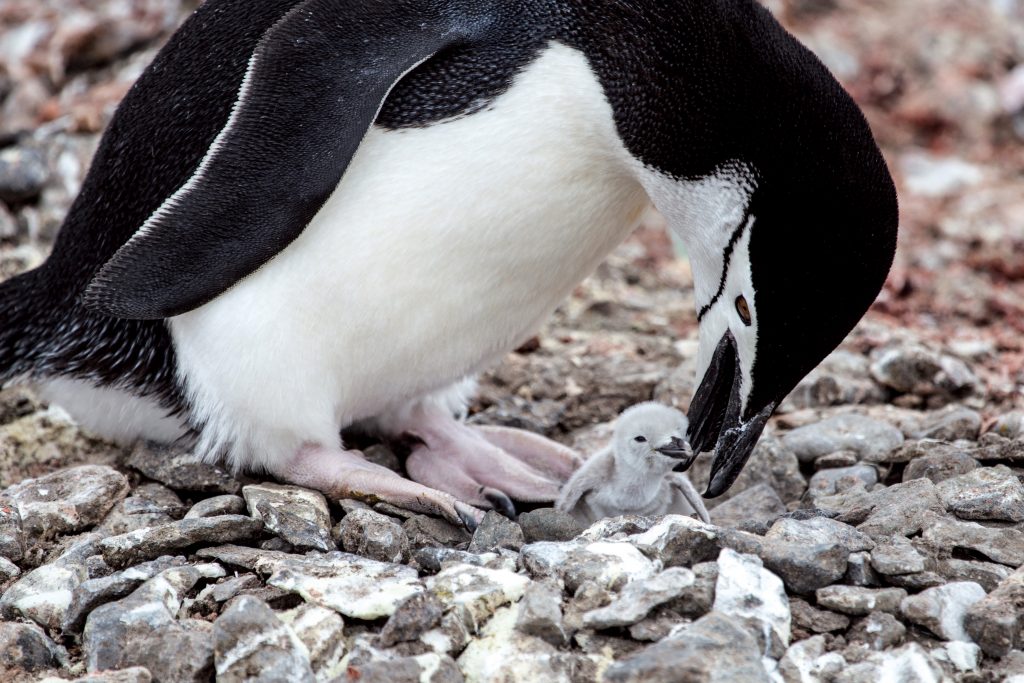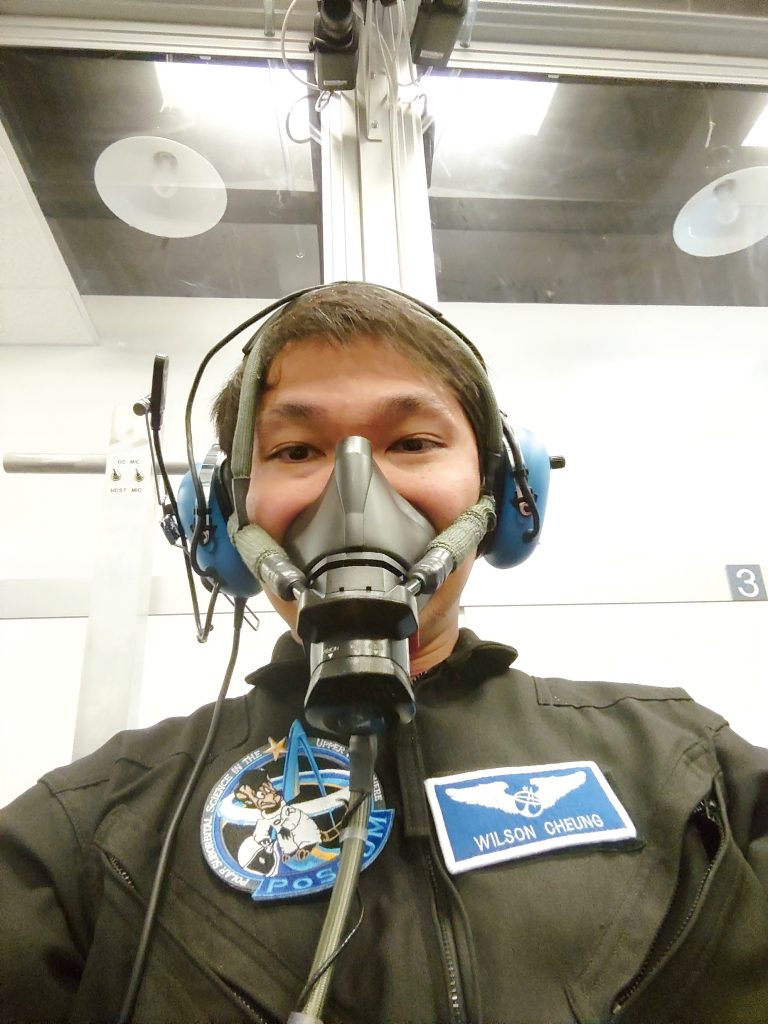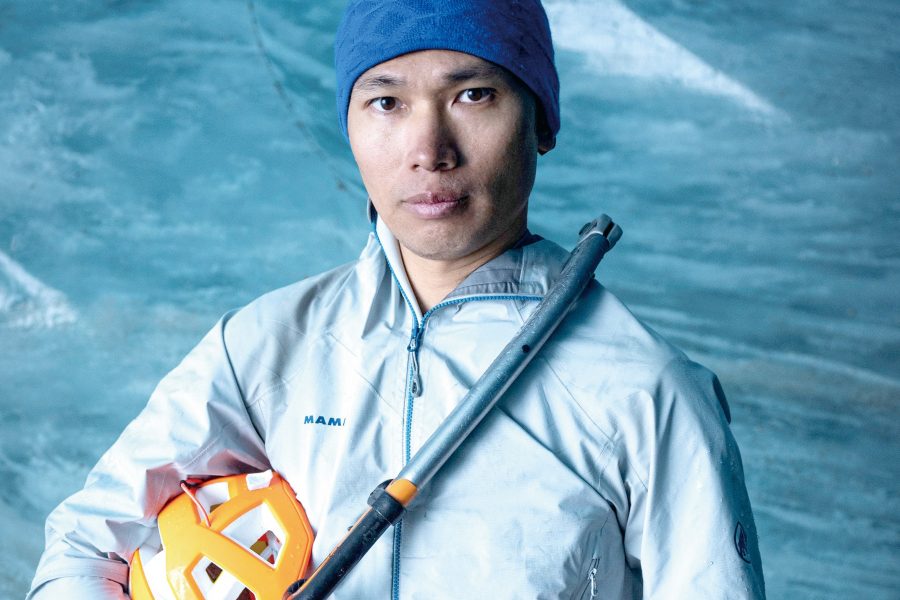The world’s first Chinese polar guide Wilson Cheung was selected as one of the Explorers Club 50 (EC50) honorees of the year. Having spent his childhood in a squatter area and scoring E’s in every subject in the Hong Kong Advanced Level Examination (HKALE), he was deemed to have a slow start. How did this millennial adopt a spirit of never giving up and become a leading polar explorer?
Be proactive
Wilson was born into a grassroots family and grew up in a squatter area in Fanling. His dad worked as a construction worker and his mother a waste collector. He used to scavenge the streets with his mum in search of soda bottles for an extra few bucks. As he could not afford toys and games, he spent most of his childhood exploring the outdoors or reading books at a public library with his mum. He was a curious, introverted and timid child who had a dream of riding a plane. In Form One, he became a cub scout and fell in love with outdoor activities on his first local camping trip. In Form Five, he knocked on his school principal’s door to ask for a five-thousand-dollar funding to attend a camping trip in Japan organized by the Scout Association of Hong Kong. With the generous support of the principal, he was given the opportunity to ride on a plane for the first time in his life. “My impoverished childhood had driven me to proactively fight for resources,” he says.
After getting E’s in Chinese, English, biology and chemistry in the HKALE, he opted for an associate degree programme at HKBU as he failed to enrol into an undergraduate programme directly. His performance took a 180-degree-turn, and he soon became a top student in his freshman year. HKBU accepted his application for a bachelor’s degree in physical education and recreation management, in which Wilson graduated with first-class honours. His first foray into exploration took place when he was in university, when he signed up to a recruitment ad for a ClimateForce Antarctica Expedition by the 2041 Foundation. He even reached out for famous local explorer Rebecca Lee via email and asked if she could write him a recommendation letter. Moved by his enthusiasm, Rebecca offered her help, and Wilson was chosen to join the two-week expedition out of more than 2,000 candidates. Wilson remarks, “Just try your best in public exams. Even if your grades turn out to be unsatisfactory, there are many other opportunities in life. Do not feel discouraged. A single exam report card does not determine the rest of your life.”
Stepping out of the comfort zone
Wilson’s dazzling grades still failed to impress employers in Hong Kong. Thanks to Rebecca’s encouragement, he found a job at a climbers’ lodge in Switzerland where he took up the cleaning and cooking work. During his afterwork hours, he took on a side job teaching rock climbing. “Despite my poor English, I had no problem teaching English-speakers rock climbing. I believe language is not the only means of communication – a sincere attitude does the magic.”
Chance favours the prepared mind. Wilson’s experience in Switzerland opened the gates to the South Pole. He encountered a French expedition team that was passing through, to whom Wilson introduced himself, and mentioned his background, experience in the Antarctica expedition and his expertise in mountain climbing, rock climbing, aviation, skiing, canoeing and more. Given the increasing number of Asian adventurers in the polar regions, there was yet a Cantonese- or Mandarin-speaking polar guide. The expedition team recruited him as their first Cantonese- and Mandarin-speaking member, thus commenced his career at the South Pole.

Reading mountains like an open book
Supported by business sponsorships, Wilson, as the first-ever Chinese polar guide, has visited over 80 countries, climbed more than half of the 4,000-meter-plus mountains in the Alps and the Tibetan Himalayas on top of notable peaks such as Antarctica’s highest mountain Mount Vinson, South America’s highest Aconcagua and North America’s highest Denali. It is obviously not an easy feat for a Hongkonger to have such achievements as Asians are born to have a less athletic build than Westerners. Asians are known to be well equipped, yet hindered by average physical fitness and subpar skills. Wilson explains that having subpar skills is just fair and understandable as the subtropical climate of Hong Kong is not favourable to ski or mountaineering training. Moreover, chances are: even the most capable athletes may not adapt to high altitudes. Therefore, he had to put in extra effort to prepare for his first trip to the South Pole. For instance, he must learn about the extreme environments, seek a sponsorship and get proper gear like thermal and water-proof clothing.
With over a decade of experience in the polar regions, Wilson considers the South Pole his home. “The closer I am connected to nature, the greater satisfaction I enjoy. The South Pole feels like home to me. I am deeply connected to the environment, the wildlife and the history. When I went skiing in Norway, the locals praised me for being able to read the mountains like an open book. The satisfaction I receive from getting to know the polar regions is far greater than any amount of monetary income.”
Finding his true self via adventures
In the past decade, Wilson’s family has only visited him once in Europe as they are not fond of travelling. When he shared the delightful news that he had been selected by the 2041 Foundation with his mother, she was not supportive of his adventure out of concern for his safety. Looking back, he is happy that he stood up for his own decision and did not listen to his mum. “I understand her concern. There is always fear whenever I make a decision, especially when I have to leave a familiar place. However, if you dare not leave your comfort zone to experience different aspects of life, you will never nurture enough wisdom to survive the world.”
Wilson’s advice to young people is that they should be bold to take on different life experiences, which in turn will help to nurture wisdom – “the fruit of civilization” as he describes it. He quotes Chinese-American geographer Dr. Yi-fu Tuan: “Home is meaningless without journey.” The life experiences he gathers from travelling across the globe have made him further appreciate the beauty of home. Wilson believes that broadening one’s horizon is beneficial to personal growth. “The best teacher in life is yourself – not your school teachers or parents. You can learn about your own strengths and weaknesses when you are in an unfamiliar place. You can be enriched immensely and enjoy profound happiness. Happiness grows when you are in a job that is enjoyable, inspiring and empowering.”

Revelations from his polar journeys
Though Wilson calls the South Pole home, spending half a year annually in the polar regions is still a journey that is full of uncertainties and dangers. He says, “Money is useless in the polar regions, only experience can save your life.” He has had many encounters with life and death throughout his career: “Penguins must lay eggs on floating ice. One time when I was working on an ice sheet, I saw the death of many baby penguins. It turns out that more than 80% of baby penguins fail to survive. This has reminded me that life is short – we should try our best in doing what we enjoy and make our time well spent on work that can help others.” When Wilson is not in his exploration gear, he puts on a lab coat to work on his research for his doctoral dissertation. Realizing that life is finite, he invests all his time in work and leaves almost zero space for pastime like watching movies. Being grateful for the generous aid he had received in making who he is today, such as academic scholarships, etc., Wilson is keen to give back to society by sharing his knowledge of the polar regions with Hongkongers.
Wilson cherishes his bond with nature. “The purpose of life is to learn about oneself. I do so by fostering my relationship with nature. Everything has come from nature, including the air we breathe, the water we drink and we humans. It has given us an abundance of free and valuable resources, yet our greed has commercialized, depleted and restricted people’s free access to it. There is an urgent need for humans, who have long been disconnected from nature, to reconnect with nature and reflect on our life direction and core values.”

With three master’s degrees and after conducting studies on cultures in the polar regions and the Arctic Ocean, Wilson is currently pursuing a doctor’s degree that looks into the melting speed of glaciers in Canada and its impact on the nation’s geology. Not only is he concerned about the speed of glacier melt, he is also curious about outer space. Wilson says, “NASA is about to launch a programme to build a moonbase. The moon contains a lot of ice, which can be converted into fuel, air and water to sustain the moonbase.” In 2020, he officially became a candidate for the PoSSUM Scientist-Astronaut programme. He is currently training to one day become the first astronaut from Hong Kong. After visiting every corner of the blue planet, he may set foot on the moon: “I hope my knowledge of the polar regions and my findings of glacier activity could be applied to our mission to the moon, so humans can evolve into an intergalactic species.”

